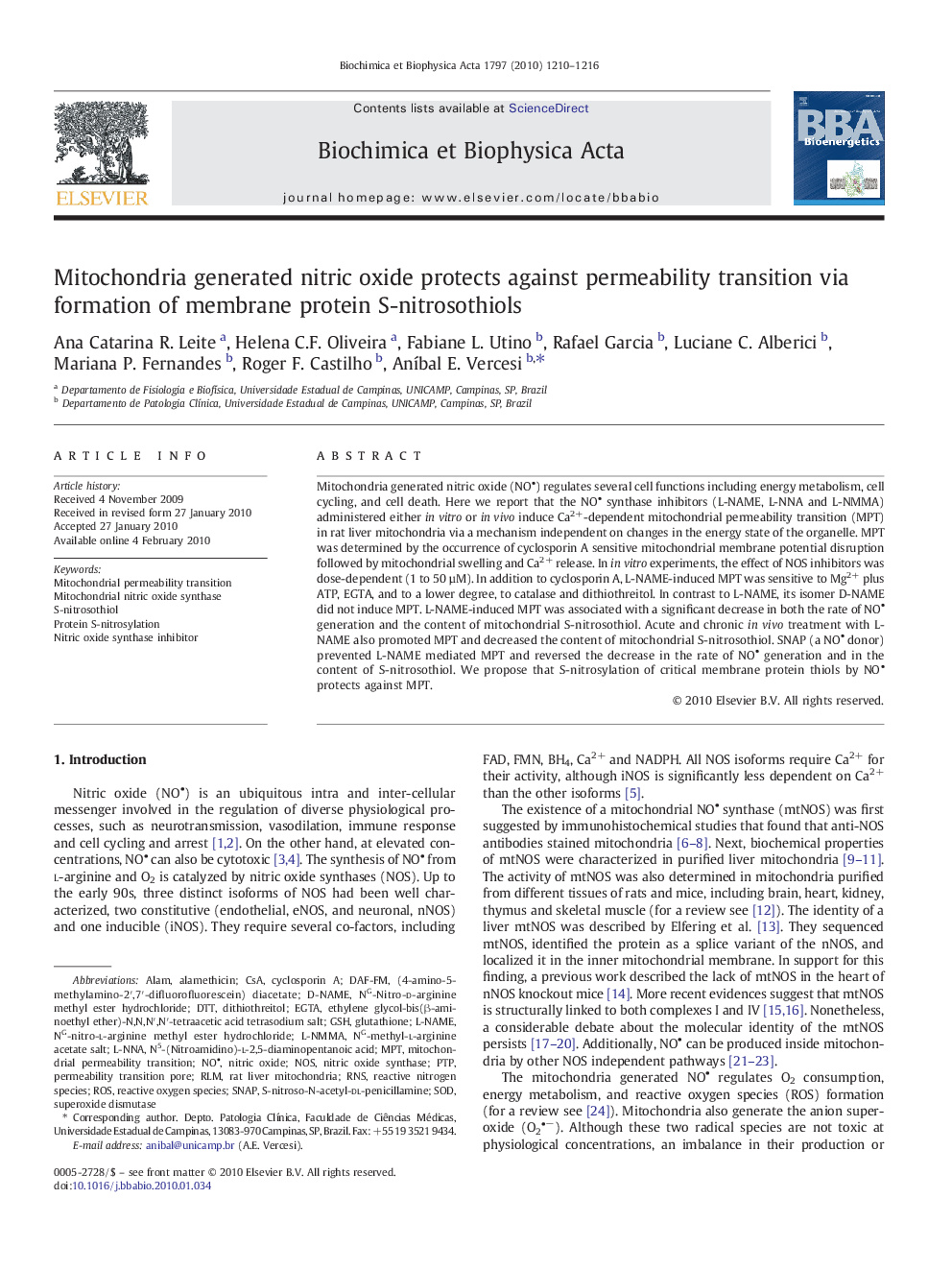| Article ID | Journal | Published Year | Pages | File Type |
|---|---|---|---|---|
| 8299005 | Biochimica et Biophysica Acta (BBA) - Bioenergetics | 2010 | 7 Pages |
Abstract
Mitochondria generated nitric oxide (NO) regulates several cell functions including energy metabolism, cell cycling, and cell death. Here we report that the NO synthase inhibitors (L-NAME, L-NNA and L-NMMA) administered either in vitro or in vivo induce Ca2+-dependent mitochondrial permeability transition (MPT) in rat liver mitochondria via a mechanism independent on changes in the energy state of the organelle. MPT was determined by the occurrence of cyclosporin A sensitive mitochondrial membrane potential disruption followed by mitochondrial swelling and Ca2+ release. In in vitro experiments, the effect of NOS inhibitors was dose-dependent (1 to 50 µM). In addition to cyclosporin A, L-NAME-induced MPT was sensitive to Mg2+ plus ATP, EGTA, and to a lower degree, to catalase and dithiothreitol. In contrast to L-NAME, its isomer D-NAME did not induce MPT. L-NAME-induced MPT was associated with a significant decrease in both the rate of NO generation and the content of mitochondrial S-nitrosothiol. Acute and chronic in vivo treatment with L-NAME also promoted MPT and decreased the content of mitochondrial S-nitrosothiol. SNAP (a NO donor) prevented L-NAME mediated MPT and reversed the decrease in the rate of NO generation and in the content of S-nitrosothiol. We propose that S-nitrosylation of critical membrane protein thiols by NO protects against MPT.
Keywords
Related Topics
Life Sciences
Agricultural and Biological Sciences
Plant Science
Authors
Ana Catarina R. Leite, Helena C.F. Oliveira, Fabiane L. Utino, Rafael Garcia, Luciane C. Alberici, Mariana P. Fernandes, Roger F. Castilho, AnÃbal E. Vercesi,
